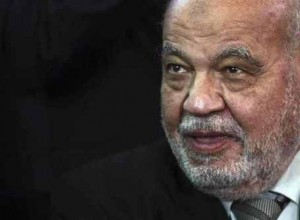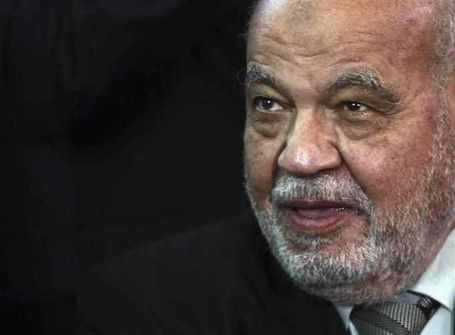
(AFP Photo)
A discussion held between the committee drafting the Information Act and a number of human rights activists and university professors have broken down on Tuesday after the Minister of Justice Ahmed Mekki consistently defended the Ministry of Interior’s actions.
Mekki attended the meeting along with the head of the history department at the American University in Cairo (AUC) Khaled Fahmy, associate dean of AUC’s business school Nagla Rizk, human rights researcher Amr Gharbeia and the Egyptian Initiative for Personal Rights’ (EIPR) director Hossam Bahgat.
All four members withdrew from the meeting after Mekki refused to acknowledge any form of systematic torture from the Ministry of Interior.
The meeting was held to discuss the latest draft law surrounding freedom of information which, according to an official statement released by Fahmy, was not brought to the fore.
According to Fahmy, the minister said that the media has been mostly misleading and false. He also said any reform within the interior ministry should be done internally, at which point Fahmy questioned whether the minister really believes that a ministry which “kills and tortures will voluntarily change their style”. If so, Fahmy added, “why not undertake even a single serious restructuring project over the past two years?”
Fahmy pointed out in his statement that there has not been a single punishment handed out to officers in relation to cases of murder or torture.
Bahgat posted on his Twitter that what he had heard from Mekki in relation to the rights of citizens and media freedoms was “far worse” than anything he had ever heard from the Mubarak-era minister, Mufid Shehab.
Rizk explained that they had been invited to participate in the committee working on the drafting of the Information Act and were happy to receive the invitation. She added that they have had experience working on the previous draft of the act that was submitted to the former parliament which was dissolved in 2012.
The meeting began at 10:30. Rizk said the talks held were not clear on reason or purpose, and that the minister had spoken at length about how the media lies and justifying the protest law that is still in the works. “The minister kept talking about how there is no systematic torture at this time, which is infuriating given the events of the past week,” she added.
“We are not here to listen to his lectures,” Rizk said, adding that if it was a call for political discussion, it should have been a two-way conversation. “We are here to discuss the law, not to listen to the minister talk about how good the current government is and the value of the Muslim family.”
“It felt to me that what was happening was so distant from the reality,” Rizk said, adding that people are entitled to their points of view, “but facts are unquestionable”.
Rizk stressed that it was important to remember the victims of torture. “We are not the heroes here,” she said. “It is extremely painful that people are dying of torture at the hands of the police, and this goes unacknowledged and unaccounted for by the ministry.”


